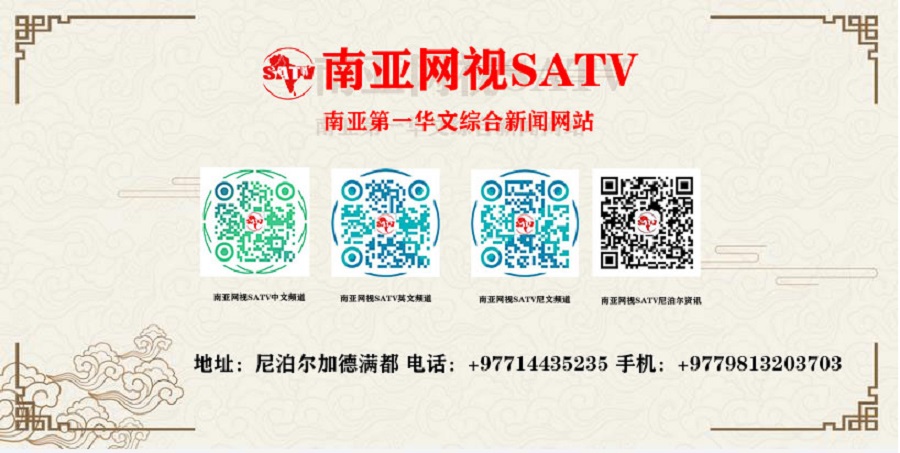
The 2021 World Internet Conference Wuzhen Summit kicked off on Sunday. Photo: IC
At the water town of Wuzhen in East China's Zhejiang Province, a high-level annual internet forum puts China's best and brightest tech talent on show surrounded by voices of confidence and resilience from tech luminaries from both home and abroad. The country's platform economy is seen as gaining luster, rather than the other way around as hyped by some Western media, and the new mood has been borne amid a responsible governmental push for greater fairness and effective innovation.
Chinese President Xi Jinping sent a congratulatory letter to the 2021 World Internet Conference Wuzhen Summit on Sunday as it kicked off. He said it is imperative for the international community to join hands to seize opportunities and meet challenges by following the trend of informatization and digitalization, as well as networking and smart development.
China is willing to work with other countries in the world to make the digital civilization benefit people of all countries, and promote the building of a community with a shared future for humankind, Xi said.
The summit constitutes a rare opportunity for some of the most pressing issues in the internet sector to be addressed, such as cyber governance and regulatory tightening, both of which have been attracting government scrutiny particularly since the emergence of the coronavirus.
Equally noteworthy, an official call at the summit for renewed support for small and medium-sized firms is considered to exemplify domestic regulators' unremitting endeavor to put the tech-savvy economy on track fostering healthier and more sustainable growth.
After experiencing a relatively quiet World Internet Conference in 2020, the Global Times found this year's event to be full of vibrancy again, with the host venue crowed with visitors, music and activities. The various venues were packed with visitors, and at the tech experience areas, eager children waited in long lines, itching to try on different high-tech gadgets.
In a virtual speech at the opening ceremony of the conference, Chinese Vice Premier Liu He urged countries around the world to safeguard the safety and reliability of the infrastructure, protect fair competition and boost innovations.
"China has experience and capability to manage and control risks. Its development prospects are very bright," Liu said, reaffirming the country's support for the sound development of private economy, online and digital economy.
Ignoring repeated explanations clarifying China's efforts to regulate its burgeoning internet economy, some Western media outlets and academics mistakenly interpreted the regulatory moves as "a crackdown."
"In fact, the Chinese government has attached equal importance in promoting the development and governance of internet industry from the very beginning, not in this year," Wu Hequan, an academician at the Chinese Academy of Engineering, told the Global Times at the conference.
It is "a misinterpretation" that the Chinese government is restricting the development of the internet industry, as if the regulations have deeply impacted the economy, social security and people's livelihood, which is not the truth, Wu claimed.
"We hope internet giants can continue to grow bigger and stronger, at the same time, drive the development of small and medium-sized enterprises [SMEs]," he noted.
Alibaba Group CEO Daniel Zhang Yong echoed Wu at the conference, "The biggest value of platform economy lies in the achievement of healthy development meanwhile helping others to achieve their goals."
Only when SMEs have vitality, the online platforms could have vitality and so does the economy, Zhang said. The e-commerce giant was fined a record $2.75 billion for anti-competitive behavior and lately pledged a $15 billion plan to boost common prosperity in China.
Lei Jun, CEO of Chinese smartphone maker Xiaomi, also called on Big Tech to provide "all-process supports and help to SMEs."
Over the past year, the Chinese government has moved toward reining in the Big Tech, aligning the country with a major global trend that has prevailed in the US and Europe to prevent internet titans from abusing their excessive influence on markets, Cheng Maiyue, director of the Wuzhen Institute, an influential internet industry think tank located in Beijing, told the Global Times on Sunday, arguing against claims that the country's regulatory toughening is going too far.
The country's approach to internet regulation may be considered uniquely suited to its own domestic conditions, but its oversight of giant platforms such as Alibaba, Tencent and ByteDance is in essence an effort to harness the greed of capital to serve the public interest, he said.
"An umpire is required for the rules of the game in the interest sphere, with obscure rules to be redrafted. In so doing, the competition will become more robust and there will be continued innovation."
It also makes more sense than ever to backstop effective innovation, industry watchers said.
That suggests greater efforts to enable underlying innovation, such as neck-choking technologies and improved capacity facilitating the country's carbon peak and neutrality goals, rather than incremental changes to business models - peer-to-peer lending for instance - that seem to succeed as measured by commercial value creation but undermine the society's sustainable development in a predatory manner, according to Cheng.
"Capital needs to be guided to stay removed from such commitments," he commented, reckoning the Chinese government to be fairly responsible in this regard.
Dixon Dai, founder and chairman of Wetrade Group, an exhibitor at the conference, told the Global Times on Sunday that prospective innovation from internet companies must be relevant to the livelihoods of ordinary people. For instance, to the silver or aged economy.
"Currently, the elderly Chinese have not gained tangible benefit from China's digital revolution," Dai said.
According to a blue paper published at the conference on Sunday, the 39.2 trillion yuan ($6.06 trillion) digital economy has become a key driver to ensure the world's second largest economy's steady growth. China's governance system on platform economy has established and is gradually improved.
It is estimated that by 2025, China's information service market scale will surpass 20 trillion yuan, said Yang Jie, chairman of China Mobile at the conference.

The 2021 World Internet Conference Wuzhen Summit kicked off on Sunday. Photo: IC
Enhancing cybersecurity cooperation
One thing that sets this year's meeting apart from previous ones is the focus on cybersecurity.
There are a number of sub-forums related to this topic, the Global Times found. There was a venue specially set to display cybersecurity companies, with related products solutions being displayed, such as Ant Group's GeaGraph system which can be used to fight money laundering and cyber fraud.
In his virtual speech, Vice Premier Liu also suggested that crackdown on illegal online behavior should be an area of global cooperation, not an agenda of recrimination.
While cybersecurity is first and foremost an emerging challenge arising from sci-tech advances, concerns over it being exploited to sow conflicts between countries indicate an extension of the never-ending wave of international politics rebalancing into the new arena, remarked Cheng, a seasoned industry veteran mentioned above.
China has always taken a cooperative yet uncompromising stance on cybersecurity, meaning the country advocates for mutual respect in terms of sovereignty and core interests and won't go on the offensive to launch cyberattacks against others, whereas it never concedes its cybersecurity bottom line, Cheng said.
According to the country's Data Security Law, China may adopt equivalent countermeasures against any prohibitive or restrictive measures imposed by any country or region in terms of data related investment or trade.
China is firmly opposed to cybercrimes endorsed by or secretly linked to foreign governments that endanger China's national security, Cheng continued, urging efforts to build up domestic technological capability to fend off such challenges.
Following the cybersecurity review on Chinese ride-hailing giant Didi, Elon Musk on Sunday told the conference that Tesla has set up a data center in China to localize all data generated from the company's business there, including production, sales, service, and charging.
"All personally identifiable information is securely stored in China without being transferred overseas… I believe data protection is not only an issue of one single company but should be a mutual effort for all industry players," Musk said in a virtual speech on Sunday.
Cristiano Amon, president and CEO of Qualcomm, also called on enhancing China-US cooperation in the cyberspace. "The possibilities at the connected intelligent edge are limitless and will be best realized when US and Chinese companies work together to drive innovation to achieve great things."
Themed on "joining hands to build a community with a shared future in cyberspace," the conference will run until Tuesday.













